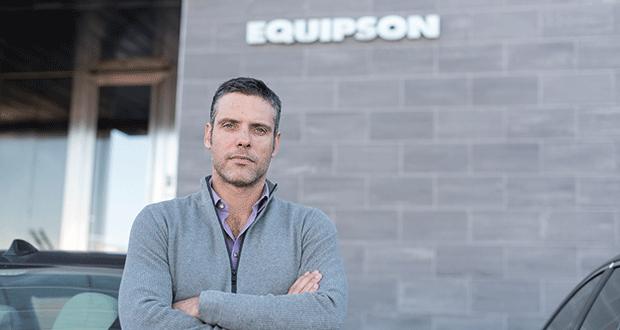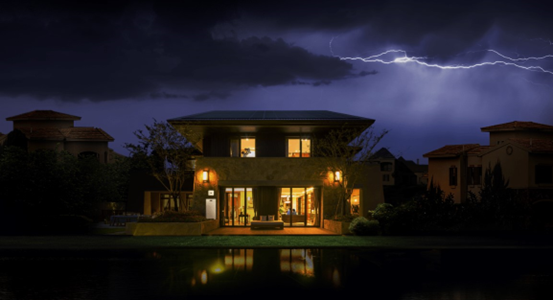Since 2001, Juan Jose has been the operational head of Equipson, a Spanish company founded in 1995 by his father, José Luis Vila.
Worker safety, particularly protocols relating to the safe use of trusses, motor hoists, stage platforms and rigging in the live events sector, is something Juan has always been passionate about. A former president of the Spanish Association of Manufacturers, he promotes best practice in cooperation with the AFIAL (the former association for manufacturers and distributors of AV) rigging book. Vila also funds the creation and distribution of safety videos so that best practice standards become more widely known.
He also now sits on a number of boards, such as AFIAL and FIAVE (the Federation of AV Associations which involves not only manufacturers and distributors but also rental companies and integrators). Over the years Juan has also sat on various committees in Spain and across Europe that are devoted to improving standards, including the CTN311 normalisation committee in Spain, and the Working 1 and Working 2 Groups of the TC433 committee in Europe.
He is now one of the founders of Fide, a forum for the Spanish events and entertainment industry that aims to raise awareness and support for the live events community.
Juan’s desire to foster expertise and competence was a key reason why, in 2016, he began working with AVIXA. Recognising the advantages that AVIXA CTS certifications could provide, he actively promoted their benefits and consistently highlighted their importance in raising professional standards. He also began collaborating with the AVT (Audiovisual Translation) Challenge and took a leading position within the Spanish market by delivering webinars and presentations at local trade shows, as well as making his own corporate facilities available to host AVIXA events and celebrate AVT challenges. This contribution was recognised by AVIXA recently when Vila was awarded the Harald Theil Volunteer of the Year Award for his dedication with the association and the AV industry.
What inspired you to pursue a career in the audiovisual world?My father has been working in the live events industry as long as I can remember so I have always been involved with the sector, mainly in audio. After working for several years within IT after my graduation, I decided it was the right time to come back to the family business, Equipson in 2001. This was the beginning of my career working in professional AV. Friends sometimes describe me as an obsessed enthusiast about technology. They are more or less right and by returning to the family business I could research many kinds of things – there would be so much to learn!
My previous career in the IT sector enabled me to experience first-hand the benefits of a professional approach to business and made me recognise that professionalism was just as important to the AV industry because, like any technological sector, it was perpetually evolving. I reasoned that if people working in this fast-changing industry were to stay ahead of the latest developments, they needed to constantly update their knowledge, standards and procedures.
What are your main responsibilities?Nowadays I am managing the Equipson group, which includes Equipson itself, Audiomusic and Fantek Industrial factory. I am more involved in areas such as product development, marketing and strategy.

How has your role changed over the last few years?When I first started my main role was related to the company’s products, then step by step I assumed responsibility for other areas, such as marketing and 20 years ago I established our R&D team which today is a pillar of our organisation.
Which project are you proudest to have been a part of, and why?Without doubt, Lightshark, the award winning console range (two AV Awards), which due to its success has become a standalone brand today. What we did is a totally different approach to the market with a high risk to see if a product like this would be accepted by the users as it was an innovative way of using the tech.The result was great, and with few economic and team resources I think we’ve established Lightshark as a well-known brand all over the world.
What’s the most impressive technology you’ve used?Without doubt the internet. We can be impressed by VR or XR technologies but nothing, absolutely nothing has changed our lives and the world itself quite as much since the internet became a commodity. The fact that you can communicate instantly with any AV technology in any part of the world – it’s magic. Can you imagine today a world without the internet?
Where do you feel the AV industry is now?Well, now we are experiencing a change of how the world is becoming in the next decade. The pandemic we are living through is changing our way of life and that is obviously affecting our industry – 2020 and then 2021 has been so challenging for all industries, not just AV.
When 2021 started we hoped that the vaccination would end the pandemic and economic numbers would start to rise again, and this happened to some extent with a huge increase in work for the installation and live events sectors during the summer and autumn. But then at the end of November Omicron came and we started to relive history. In addition, we faced other obstacles, namely a rapid increase in the demand for products and increases in the price of raw materials, electronic components, transport, and so on, which makes it impossible to keep prices level for every company.
There was also an issue with the delivery times of components and materials which resulted in lead times that in some cases were just ridiculous. So, while we had a large increase to ‘normal’ levels of sales, in the background lead times and cost prices were also increasing. The arrival of the new Covid variant has made the economic situation around the world very complex and every company is finding it difficult to make provisions for the future.
The complexity of the current situation makes it very difficult to predict the future. Let’s be optimistic and imagine that Omicron will end before March.
In this scenario, we will still face the problem of cost prices and lead times. The law of supply and demand dictates that long lead times will increase cost prices but if the pandemic is easing, these increases shouldn’t be as high as they were in 2021. In economic terms, we are experiencing what is known as the Phillips curve, a rapid increase in the number of people employed (because there is so much work to do), which will lead to a huge increase of prices. The Phillips curve is still applicable, even when you are only predicting one year ahead, and it is worth remembering that the European Commission is predicting that the rise in cost prices won’t be controlled until 2023. Given all these factors, my prediction for the AV industry in 2022 is uncertain but is at least optimistic.
Regarding other developments that are only affecting the AV industry, I remember in 2014 being interviewed by a Spanish magazine and saying in that interview that IT companies will come to our industry and strongly compete with the traditional AV companies. Now in 2021-2022, it’s there. The development of unified communications has jumped leaps and bounds in the last two years and I cannot see a better example of how UC brings together the IT and AV industries.
Also in the last decade, our industry changed from just selling technology to selling the experience, and this is what I think is the next challenge for the next five years – how we are going to improve that experience. The best-known consumer electronic and IT brands like Apple or Meta are focused in VR and XR so the consequence is that these technologies will become commodities and change how we experience our environment, so AV has a big and uncertain challenge right around the corner. It will improve experiences so they become more immersive. Combining this effect with new devices that will be in all hands, it will be just like mobile phones were, starting with just the phone and now it’s become an extension of us. This will develop in all AV sectors, from unified communications to the live events world.
What do you think needs to be done to encourage the younger generation to consider a career in the AV and wider technology industry?We need to work more closely with educational centres such as professional schools and universities to achieve several targets: first, to spread to the next generations what AV is and how this incredible industry can change their lives if they decide to work within it in the future – so first, attract the attention of those next generations. Second is to cooperate closer with educational centres to help them to design the curriculum that our industry needs. I am doing this today, participating personally in university advisory groups, as a company talking directly with schools to show them concrete technologies and their application, and also across associations like AVIXA or Afial with which I am cooperating closely to work with education entities from one side and spreading the importance of continuous learning with certifications like CTS.
What are you involved with currently?In terms of company growth for 2022 we are focusing on one side to improve the production capacity of our factory Fantek (www.fantek.es/) with new more efficient machinery to be able to make more complex products, and from the other side of the business we know how important it is to keep growing and motivate our R&D department. So, we are now integrating more talent into the team which will, I am sure, result in more products and overall, more innovation.
How do you think the pandemic has affected the AV industry?I see two big and totally different effects from the pandemic. One is, without doubt, the huge increase in unified communications where remote work and remote meetings experienced an advance of five years in just a few months.
On the other side, I see a totally opposite effect. The pandemic almost destroyed the live events industry and government administrations forsook not only the companies but also a whole community of people who work behind the scenes – technicians, production managers, backliners, production companies, and rental companies. All of them had to stop working immediately and many of them weren’t able to develop their business for more than a year.
I have been personally involved in several actions to highlight the issues of these communities, such as becoming part of the Spanish ‘We Make Events’ movement team, founding Alerta Roja and working closely with associations to lobby government administrations – even creating a podcast to highlight the talent of professionals in the live events sector, and making a portal where they can be found based on their skills (avify.net).
And finally, we have been doing Bikefest, a project that serves to promote values like solidarity within the live events sector, inclusivity and diversity to our industry and also to raise awareness about making our industry greener because of the energy crisis we are experiencing now and will feel the brunt of in years to come. (This three-day charity project finished on 31 January on what would have been the eve of ISE.)









